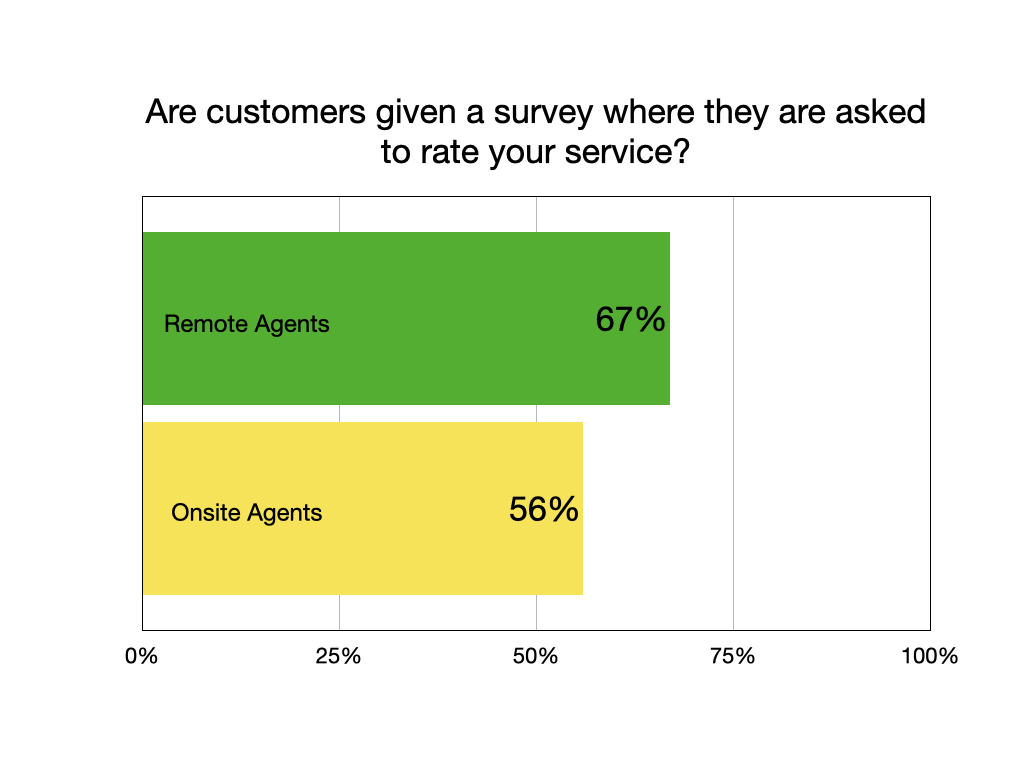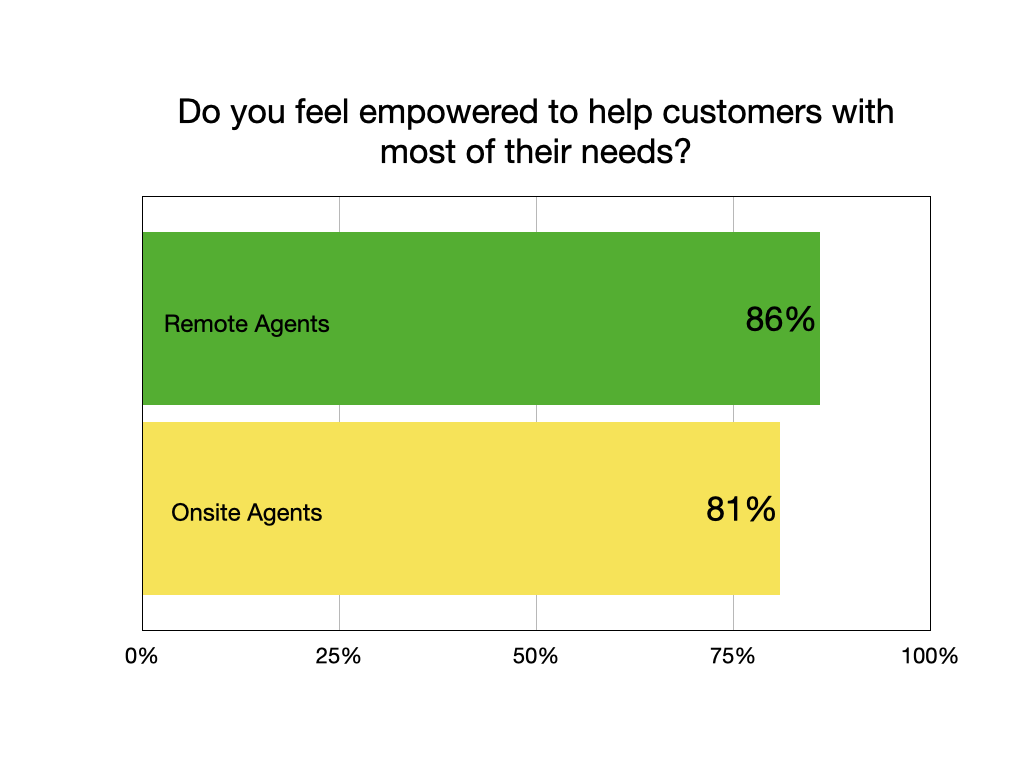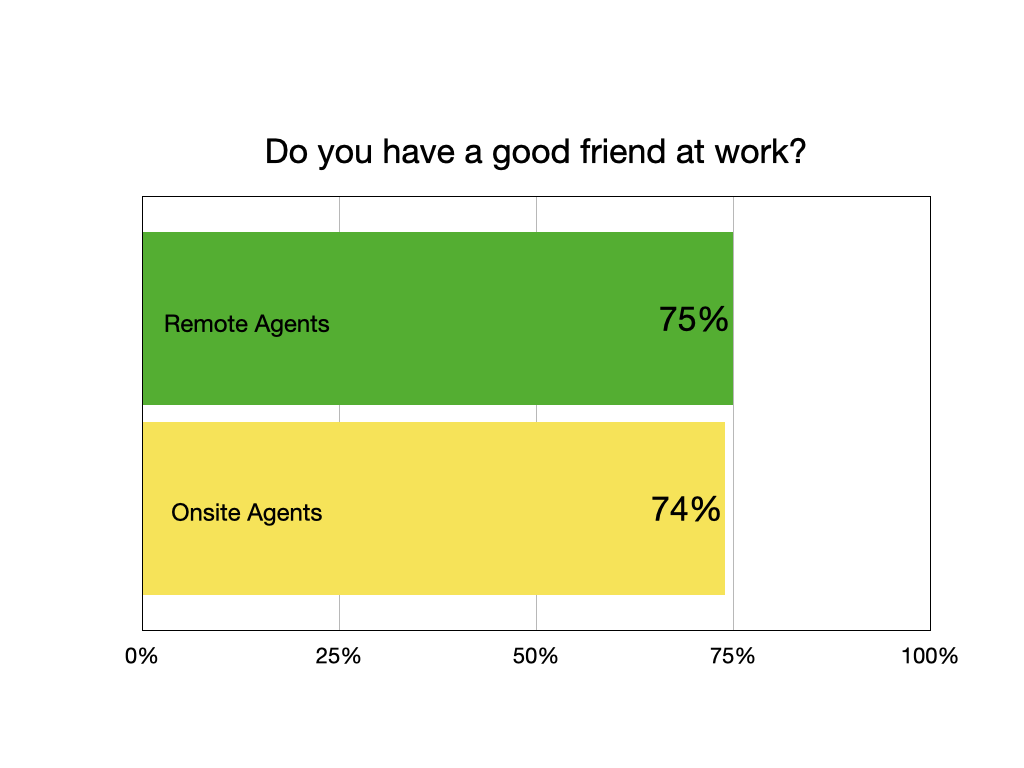Remote work is polarizing, especially for contact centers.
Team Onsite believes communication and teamwork improves when everyone is working in the same place. And Zoom fatigue is real, y’all!
Team Remote touts the cost savings, flexibility, and improved quality of life that comes from having agents work remotely.
Here’s some good news for Team Remote: your agents report having better bosses.
This was an accidental discovery.
In early 2023, I launched a study on contact center agent burnout. One question I asked was whether remote agents faced a lower burnout risk than onsite agents.
It was a dead end. Onsite agents are just as resilient to burnout as people who work from home.
Then I looked closer and saw something unexpected. Remote bosses are crushing the arguments for requiring agents to work onsite.
Remote bosses give more feedback
More remote agents report getting regular feedback from their boss than agents who primarily work onsite. A lot more.
This really blew my mind.
Improved communication is one of the big arguments for having everyone work onsite. The theory is you have a lot more informal conversations when you work in the same physical space.
Apparently, it’s not true. Why is that?
One manager explained that working in different places causes you to be more thoughtful about how you communicate. This includes giving feedback.
With remote employees, it's essential to put everything in writing and share regular reports. This allows feedback conversations to be more focused.
An agent who has worked remotely for several companies agreed. He told me that he’s had regular meetings with his boss in each company he worked for.
Perhaps onsite managers are less structured in their approach?
One bit of data from the study might back this up. Remote agents are more likely to work for a company that surveys their customers.
Remote bosses set a better example
When I managed a call center, I regularly picked different seats in the center and took calls alongside my agents. I wanted to set an example for the team.
So I was really shocked to see that remote agents are more likely to feel their boss sets a positive example.
How can the boss set a better example if you don't see the boss?!
That might be the whole point.
One remote agent explained that working offsite generally requires more autonomy, flexibility, and mutual respect. That really hit home—every great boss I've had shared those qualities.
Perhaps onsite bosses are too quick to take advantage of working in the same place. Here are a few examples I've witnessed:
Hovering over an agent while they're on a call.
Trying to have a conversation in between contacts.
Panicking over the queue.
Want more surprising insights?
Getting Service Right reveals 10 hidden and counterintuitive obstacles to outstanding customer service.
Remote agents are more empowered
Across the study, empowerment was the top factor that made agents more resilient to burnout. This was true whether agents worked onsite or remotely, but there was still a gap between the two:
This one makes some sense.
Supervising remote employees generally requires you to give your team clearer policies, more resources, and greater autonomy.
Those are all essential to empowerment. (See my complete empowerment guide.)
Empowerment also requires good training. This was another surprise. I would have expected remote employees to feel they're getting less training than their onsite counterparts, but that's not the case.
Conclusion
This doesn’t settle the issue.
There's still a healthy debate between having your agents work remote or onsite. And, I don't think there's a single right answer. Different options probably work better in different organizations.
But this data counters many of the traditional arguments for having agents onsite.
Here's one more insight that might surprise you. Team Onsite is quick to point out that people develop better relationships when they work in the same location, while remote employees are isolated and sad.
The data debunks that:
Want to learn more about agent burnout? --> Get the full report
Discover 11 factors that make agents more resilient
Identify the profile of an agent at risk of burnout









